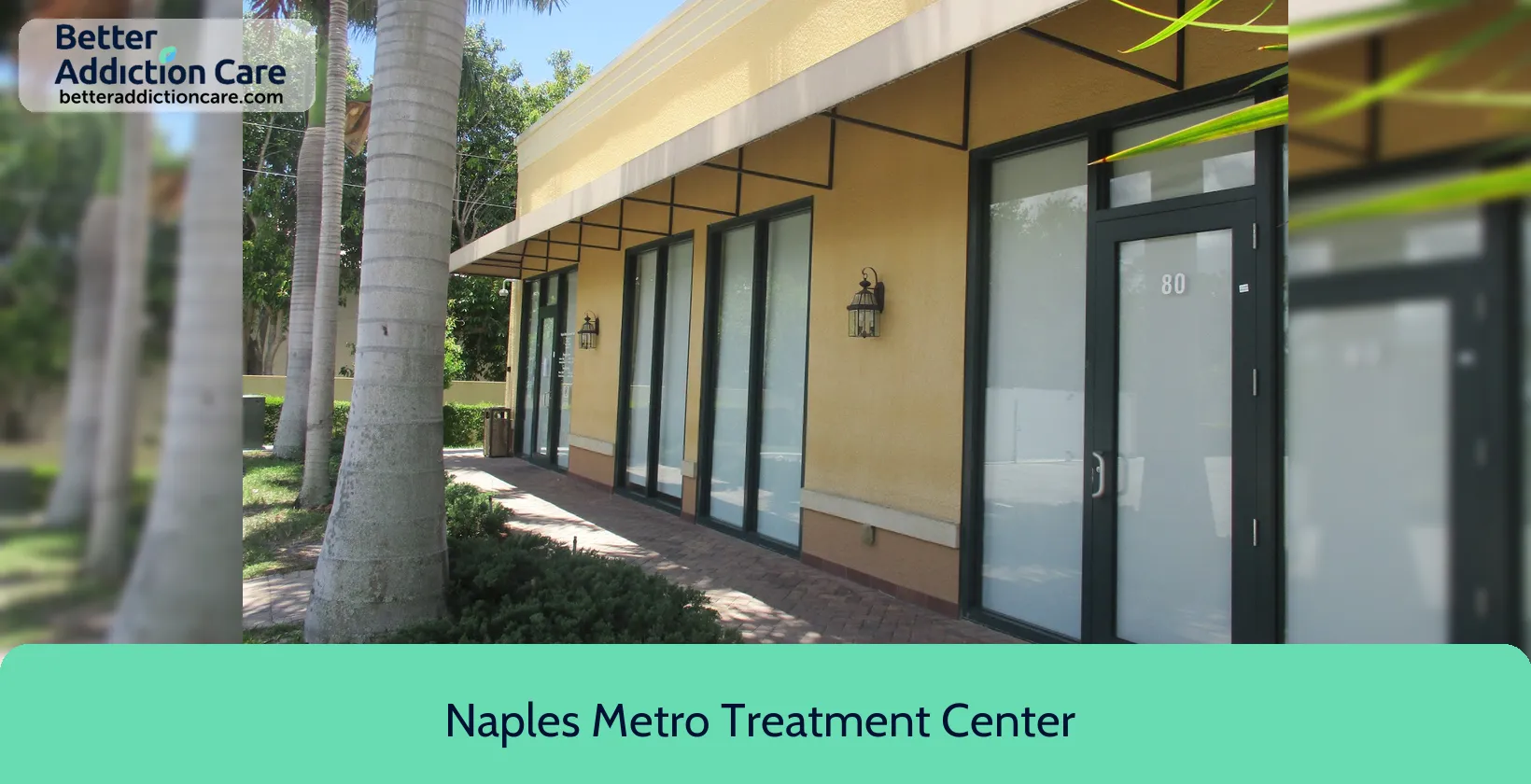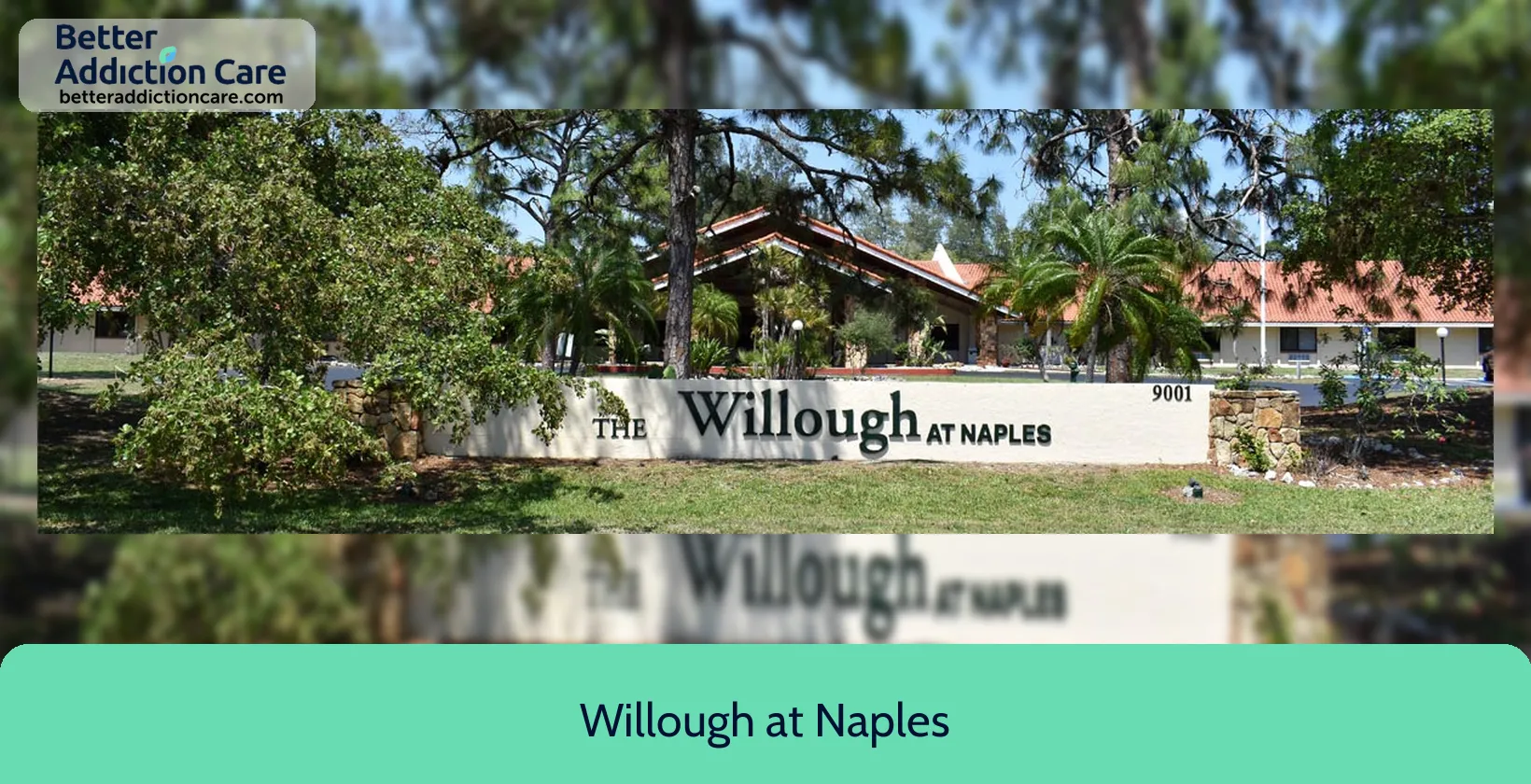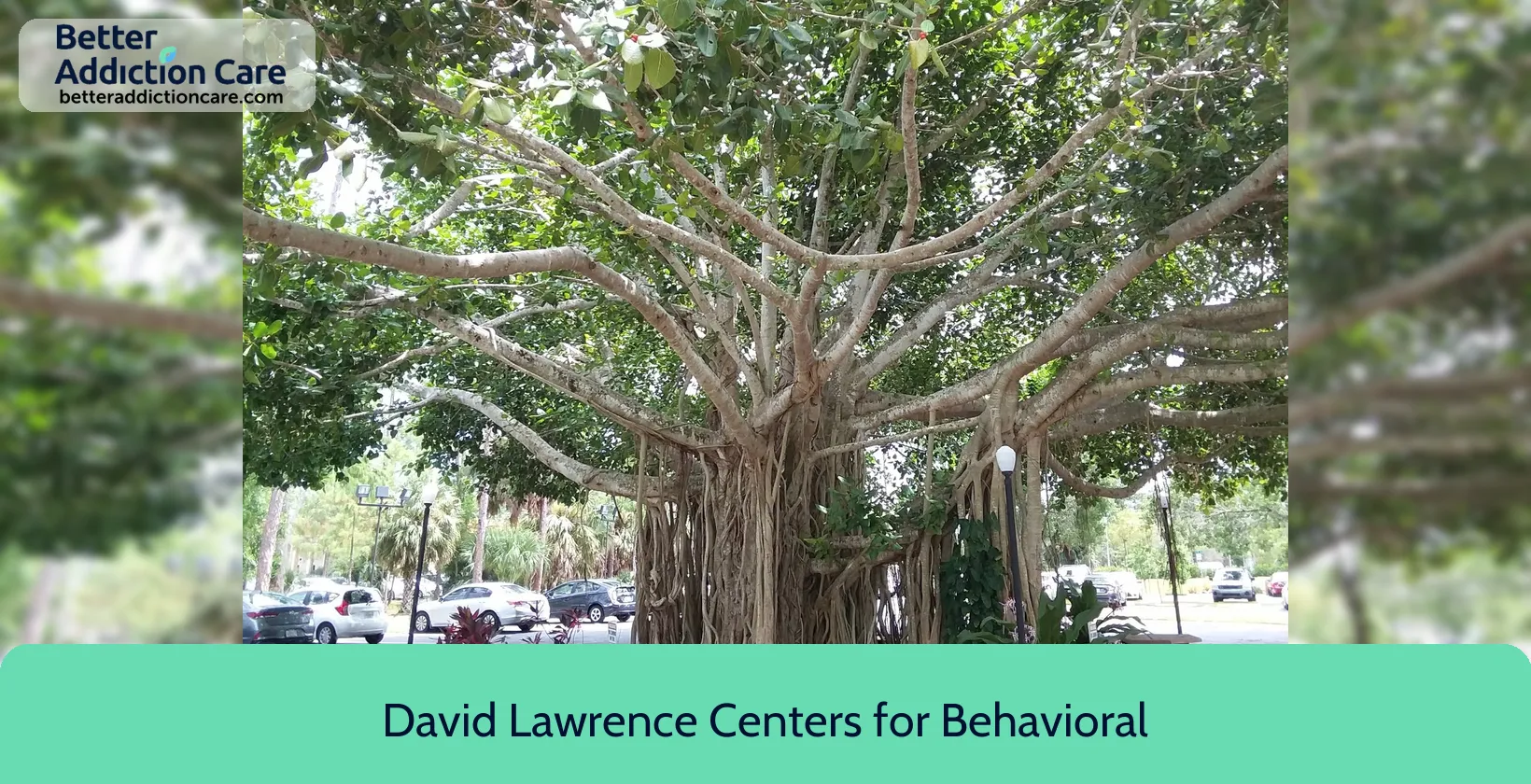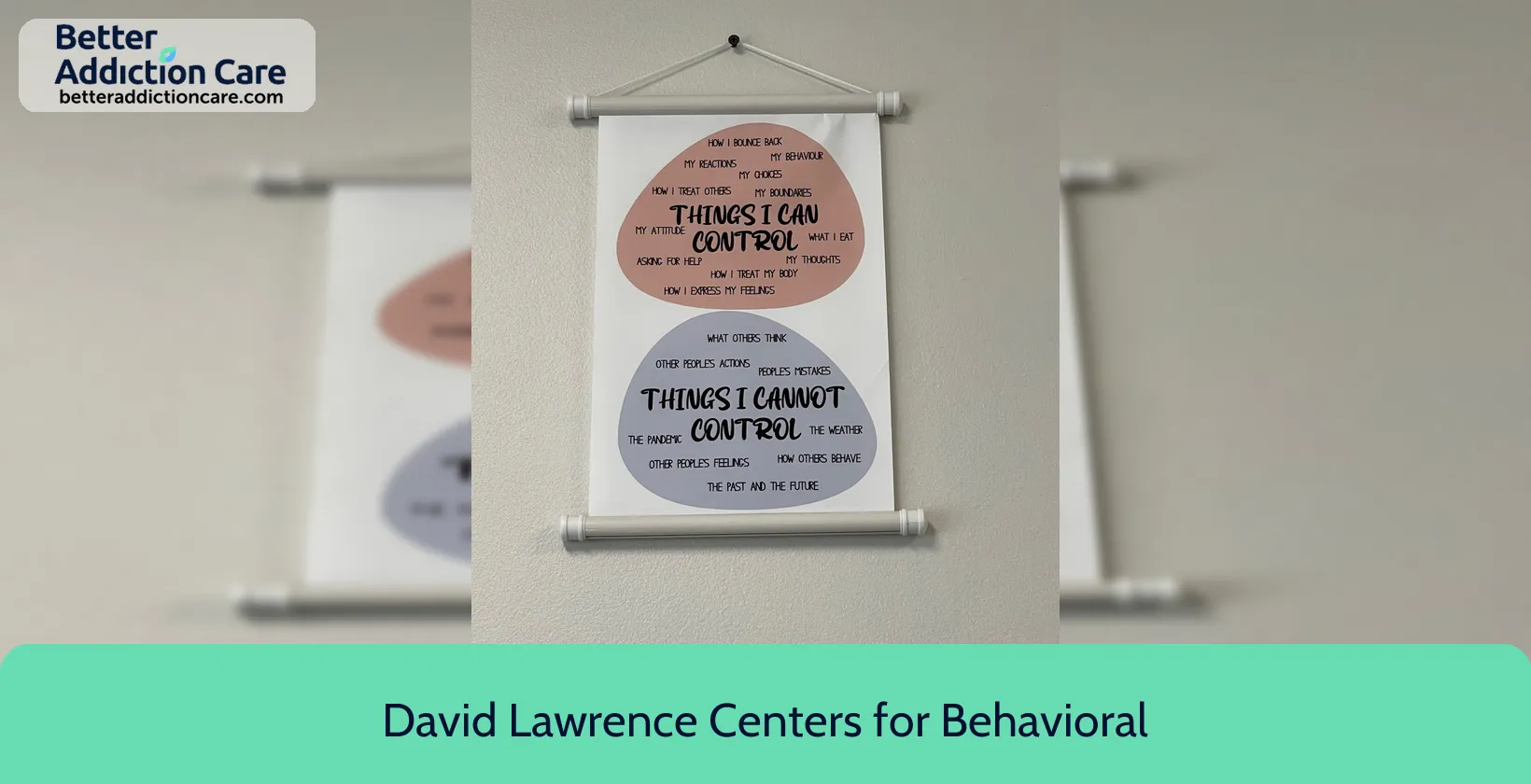David Lawrence Centers for Behavioral Health
Overview
David Lawrence Centers, situated in Naples, Florida, offers a comprehensive selection of mental health and addiction treatment services to individuals who are grappling with substance use disorders and behavioral health challenges. Their programs are inclusive and appeal to individuals of all genders and backgrounds. They provide detoxification services, inpatient residential programs, intensive outpatient programs (IOP), partial hospitalization programs (PHP), outpatient services, and aftercare support to ensure long-term recovery.
The center implements an array of treatment modalities, such as Cognitive Behavioral Therapy (CBT), activity therapy, conflict management, animal therapy, 12-step programs, wellness and fitness activities, medication-assisted treatment (MAT), and family support services. David Lawrence Centers' specialized programs for veterans and first responders are a distinctive feature that address the unique behavioral health challenges these groups encounter. The facility maintains stringent quality and care standards, as it is accredited by The Joint Commission. The center accepts a variety of private insurance plans, and clients are encouraged to contact the center to confirm their specific coverage and benefits.
David Lawrence Centers for Behavioral Health at a Glance
Payment Options
- Cash or self-payment
- Medicaid
- Medicare
- State-financed health insurance plan other than Medicaid
- Private health insurance
Assessments
- Screening for tobacco use
- Comprehensive mental health assessment
- Comprehensive substance use assessment
- Interim services for clients
- Outreach to persons in the community
Age Groups
- Children/adolescents
- Young adults
- Adults
- Seniors
Ancillary Services
- Case management service
- Education services
- Family psychoeducation
- Suicide prevention services
- Domestic violence services, including family or partner
Highlights About David Lawrence Centers for Behavioral Health
7.80/10
With an overall rating of 7.80/10, this facility has following balanced range of services. Alcohol Rehabilitation: 8.00/10, Drug Rehab and Detox: 7.85/10, Insurance and Payments: 6.67/10, Treatment Options: 8.67/10.-
Treatment Options 8.67
-
Alcohol Rehabilitation 8.00
-
Drug Rehab and Detox 7.85
-
Insurance and Payments 6.67
Accreditations
State mental health department:
State mental health department accreditation refers to the process of evaluating and certifying the quality and standards of a state's mental health department, ensuring that it provides high-quality services and meets specific criteria for mental health care. The accreditation process is performed by a third-party organization and helps to improve the overall care and treatment of individuals with mental health conditions.
Federally Qualified Health Center:
Federally Qualified Health Center (FQHC) accreditation is a process of evaluation and recognition by the federal government for community health centers that provide comprehensive and accessible healthcare services to underserved populations. FQHC accreditation is essential for centers to receive federal funding and to ensure that they meet standards for quality, patient-centered care.
The Joint Commission:

The Joint Commission accreditation for addiction and behavioral health is a prestigious recognition signifying a facility's commitment to delivering high-quality care and safety for individuals dealing with substance abuse and mental health issues. It involves rigorous evaluations and assessments, ensuring patients receive evidence-based treatment and exceptional care. This accreditation demonstrates a facility's dedication to continuous improvement and ethical practices, building trust among patients and healthcare professionals seeking top-tier addiction and behavioral health services.
Effective date: 08/06/2016
Registration: 1274
SAMHSA certification for opioid treatment program (OTP):
SAMHSA's Opioid Treatment Programs (OTP) accreditation is a prestigious recognition that signifies a program's compliance with stringent standards and guidelines established by the Substance Abuse and Mental Health Services Administration (SAMHSA). This accreditation demonstrates an OTP's commitment to providing high-quality, evidence-based care for individuals struggling with opioid use disorder (OUD). It serves as a trusted symbol of accountability and excellence, assuring patients, families, and communities that the OTP offers safe, effective, and comprehensive treatment options for OUD.
State department of health:

State Licenses, issued by government agencies, authorize rehabilitation organizations to legally operate within designated geographical areas. The specific licenses required for operation are typically determined by both the nature of the rehabilitation program provided by the facility and its physical location.
Treatment At David Lawrence Centers for Behavioral Health
Treatment Conditions
- Alcoholism
- Mental health treatment
- Substance use treatment
- Co-occurring Disorders
Care Levels
- Hospital inpatient/24-hour hospital inpatient
- Hospital inpatient treatment
- Partial Hospitalization Program
- Outpatient
- Short-term residential
Treatment Modalities
- Individual psychotherapy
- Couples/family therapy
- Cognitive behavioral therapy
- Dialectical behavior therapy
- Integrated Mental and Substance Use Disorder treatment
Ancillary Services
Languages
- Sign language services for the deaf and hard of hearing
- Spanish
- Other languages (excluding Spanish)
- Creole
- French
Additional Services
- Pharmacotherapies administered during treatment
- Mentoring/peer support
- Breathalyzer or blood alcohol testing
Special Programs
- Clients with co-occurring mental and substance use disorders
- Veterans
- Clients who have experienced trauma
- Children/adolescents with serious emotional disturbance (SED)
- Persons 18 and older with serious mental illness (SMI)
Get Help Now
Common Questions About David Lawrence Centers for Behavioral Health
Contact Information
Other Facilities in Naples

6.53

7.02

7.29

7.05

7.06
DISCLAIMER: The facility name, logo and brand are the property and registered trademarks of Willough at Naples, and are being used for identification and informational purposes only. Use of these names, logos and brands shall not imply endorsement. BetterAddictionCare.com is not affiliated with or sponsored by Willough at Naples.



